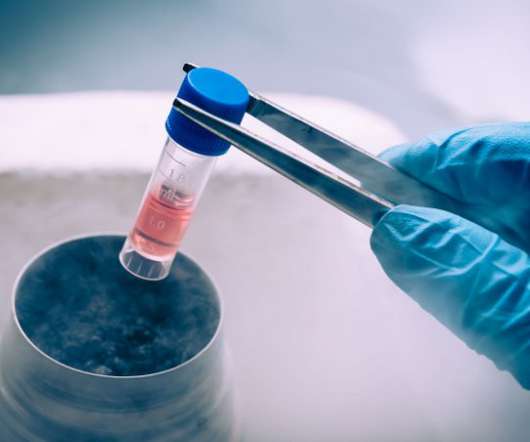Three-in-one approach boosts the silencing power of CRISPR
Scienmag
JULY 2, 2021
The ongoing effort to explore […].

Scienmag
JULY 2, 2021
The ongoing effort to explore […].

Pharma Marketing Network
DECEMBER 21, 2020
Almost two decades after the human genome was sequenced, a trickle of new genetic medicines (i.e., those that modify the expression of an individual’s genes or repair abnormal genes) has entered clinical practice, including 11 RNA therapeutics, 2 in vivo gene therapies, and 2 gene-modified cell therapies.
This site is protected by reCAPTCHA and the Google Privacy Policy and Terms of Service apply.

pharmaphorum
JUNE 28, 2021
The reductions matched the efficacy of current therapies for ATTR amyloidosis that require chronic dosing such as Alnylam’s Onpattro (patisiran) and Ionis/Akcea’s Tegsedi (inotersen) – both gene-silencing agents which can cost around $450,000 a year. — Eric Topol (@EricTopol) June 26, 2021.

XTalks
MAY 4, 2021
Researchers at the University of California San Francisco (UCSF) and the Whitehead Institute have developed a novel CRISPR-based tool called “CRISPRoff” that can switch off genes in human cells through epigenetic editing without altering the genetic sequence itself.

Drug Discovery World
JANUARY 23, 2023
Kevin Hemphill, R&D Manager at PerkinElmer’s Horizon Discovery explores how base editing has emerged as an attractive gene editing option for researchers wanting to develop stem cell-based therapies. In addition, iPSC lines, despite their pluripotency, have skewed suitability towards certain cell types 12,13.

XTalks
MAY 4, 2021
Researchers at the University of California San Francisco (UCSF) and the Whitehead Institute have developed a novel CRISPR-based tool called “CRISPRoff” that can switch off genes in human cells without editing the genetic sequence itself.
Let's personalize your content